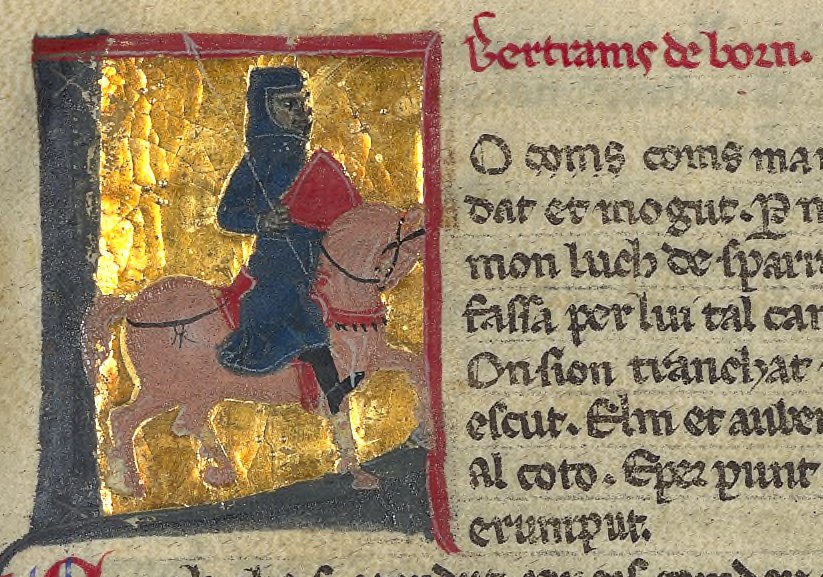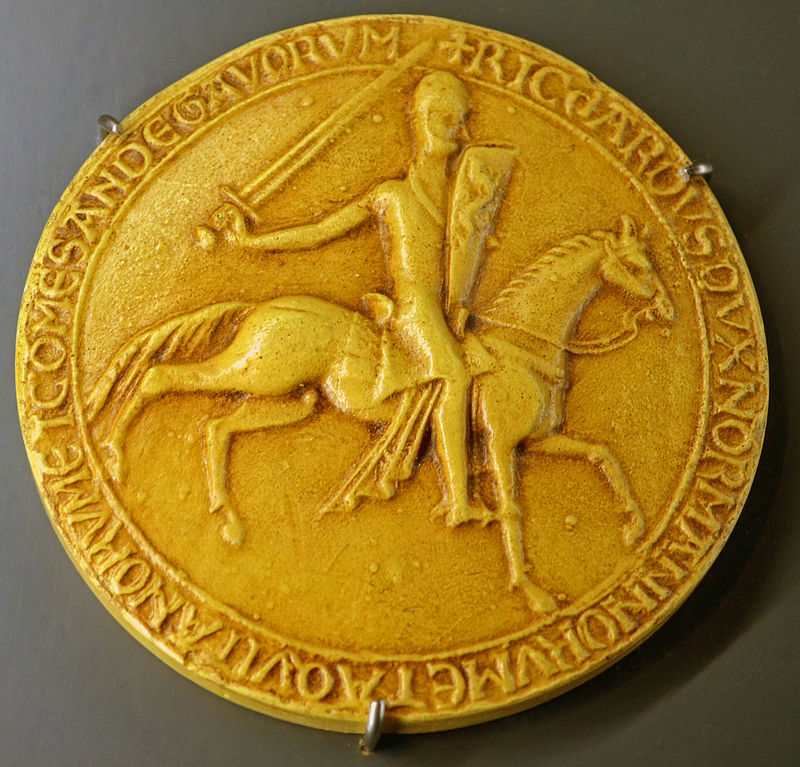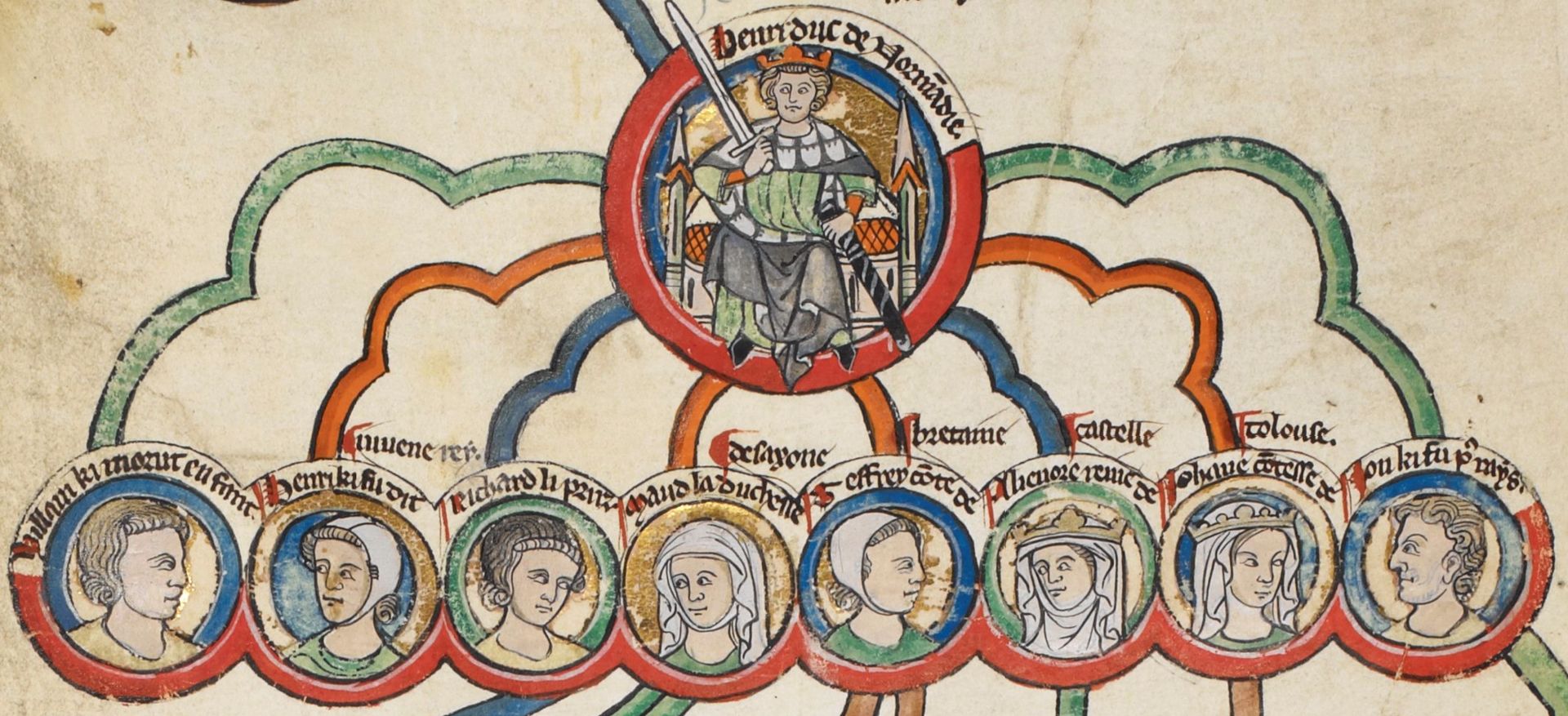The first King Richard of England is most commonly known by his epithet ‘Cœur de Lion’ or ‘the Lionheart,’ which was derived from contemporary descriptions of him. However, there is another sobriquet that he was also given during his lifetime – Oc-E-No.
This senhal, which translates to ‘Yes-and-No,’ was given to him by Bertran de Born, an Occitan lord and troubadour from Limousin. As a lord of the south of France various times, Bertran fought against and alongside Richard. This complex relationship can be seen in Bertran’s poetry as well; whilst he often sung Richard’s praises, he was also not afraid to criticise Richard, even when they were allied.

Bertran uses ‘Oc-E-No’ to refer to Richard it in a number of his poems. I have provided a few examples here.
In one verse, which has been described as almost a love-song to war, he writes:
‘go cheerfully and quickly to Sir Yes-and-No and tell him they are too much at peace’
(d’agradatge ad Oc-d-No t’en vai viatz; digas qe trop estan en patz)
In another, self-deprecating poem, he laments:
‘Now I go around scared of Sir Yes-and-No because it bothers him if I scold him at all, and the French king goes so daintily that I am afraid he may spring on me. By singing I have turned against myself more dukes, princes, and emirs than ever were at the siege of Troy.’
(D’en Oc-e-No mi vauc ara duptan
qar peza li si nuilha re.l casti;
e.l reis franceis vai si trop aprimam
ez ai paor qe veinha sobre mi.
Mas anc al seje de Troia
non ac tan duc, prince ni amiran
con ieu ai mes per chantar a mon dan.)
A third poem compares Richard with his brother, John:
‘Sir Yes-and-No likes peace with Philip, I believe, more than his disinherited brother John does.’
(En Oc-e-No ama mais patz ah Felip, crei,
que.l frair Joans deseretatz)
It isn’t clear just what Bertran was implying with this senhal; given his chequered history with Richard, we cannot even say whether it was supposed to be praise or critique. Over the years, historians have put forward various theories.
John Gillingham believes that the ‘Oc-E-No’ we should infer that Richard had a reputation for terseness, merely replying ‘yes or no’ without elaboration when asked a question. In that spirit, he does not elaborate further on how he came to this conclusion.

Kurt Lewent, a German historian, took a broader approach, comparing it with similar phrases in other 11th to 13th century French literature. He believes, based on a comparative study, that Bertran is praising Richard for always taking the right course of action. That it should be interpreted as ‘a man who is called ‘Yes-and-No’ is one who says ‘yes’ and ‘no’ when either of them is in its place; one who does the right thing at the right moment.’
Gérard Gouiran, a French historian of medieval literature, suggests that the name is a lighthearted reproach at Richard’s history of duplicity, particularly in his relations with King Philippe II Auguste. He bases this interpretation upon a line about Philippe’s dealings with his barons:
‘It is not right that a king with something to grant, after he has said yes, should ever say no.’
(E non es dreitz de rei qe ren autreia, pos a dich d’oc, qe mais diga de non.)
Though this line is not related to Richard in any way, Gouiran suggests that it reveals something about Bertran’s attitudes about honour and nobility, and that ‘Oc-E-No’ is a critical epithet implying that Richard would never keep his word.
Another interpretation along the same lines suggests that Bertran was saying Richard was fickle and ever-changing his mind. This theory has generally been discounted as it just does not fit with what we know of Richard’s character; he would have been a much less successful military commander if he had not been so decisive.
Personally, Gouiran’s theory resonates the most with me. Richard had all the ruthlessness a medieval king needed, and he wasn’t afraid to make use of deception (also known as politics and diplomacy) when the need arose. Whether this was meant as praise, I’m not so sure. Perhaps Bertran himself was pointing to the ambiguity of Richard’s character.





